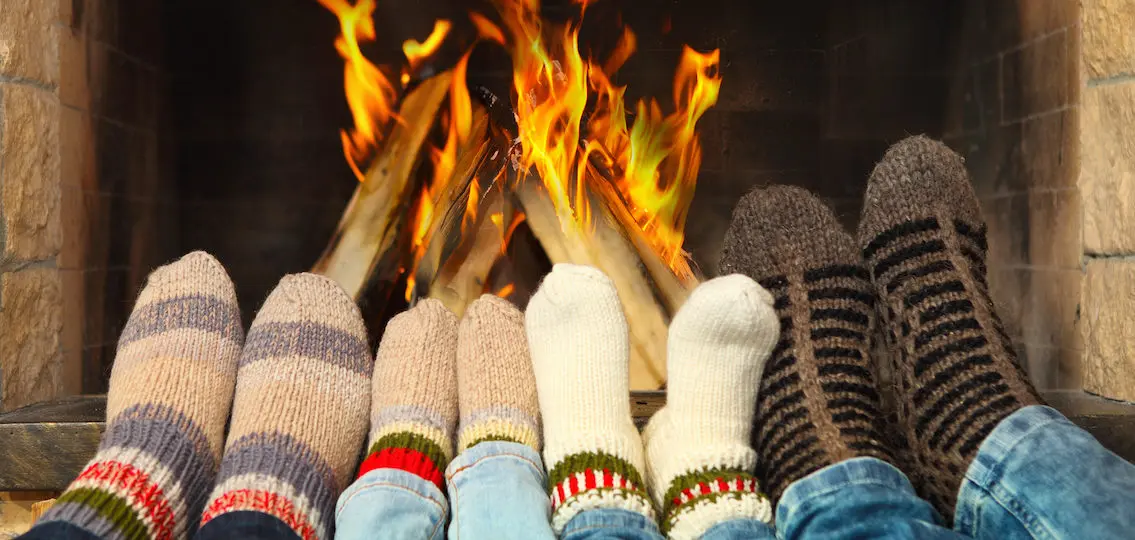Thanks to 2020, it’s not a hidden story that a lot of us are feeling a lot more like Scrooge than Elf right now. As the holidays quickly approach, we are rethinking the season with the pandemic at the forefront. In a year that has been filled with so much pivoting and so many cancellations, this is a daunting task for parents who are already feeling depleted, exhausted, and overwhelmed and for teens who have managed one disappointment after another.

Just about now, we may be feeling jealous of the animals who get to hibernate, but since that option isn’t available to us (although I do see some great pajama days in my future), we need to turn our attention toward reimagining the 2020 holidays.
We reached out to several experts to get ideas, advice, and inspiration that will help us enjoy a healthy, happy, and memorable holiday season with our families.
How to Celebrate the Holidays in 2020
1. Acknowledge our negative feelings
It’s crucial to understand how each person in your family is doing emotionally, says Kristin Carothers, PhD. As we can think about the holidays, we need to “take the temperature as a family.”
In most cases, the last several months have been stressful. John Duffy, PsyD, emphasizes that the holidays are always a time when despite our high hopes, there are inevitably letdowns. But 2020 is even harder because the holidays are going to look different this year. “Holiday anxiety is ramping up as people’s expectations grow and grow,” Duffy shares.
Our teens have lost so many experiences over the course of the year. Duffy says that it is important to acknowledge how difficult this year has been and “hear our teens out and not minimize their losses.” Katie Hurley, LCSW, explains that once our teens express their negative feelings and feel heard, then they can begin to work on positive thinking and reframing their thoughts. “We’re all exhausted. We have pandemic brain, but this is a good opportunity to chip away at reframing our thinking. Do it as a family so you can lift each other up.”
Just as our teens need to know that they have a place where they can express their feelings, adults need it, too. Suniya Luthar, PhD, explains, “Children need to be taken care of and feel loved in order to be resilient. The same thing applies to parents. You as a mom or dad need to feel replenished and supported.” She suggests gathering (virtually) a small group of people together with the express purpose of making authentic connections and providing support and nurturing.
| [adrotate banner=”196″] |
Some families have to deal with not only the loss of life as they know it but also the loss of loved ones, adding another layer of grief to the holidays this year. Jen Stern, LISW, explains that “there is no right or wrong when it comes to how we respond to loss. The holidays may be hard. Get your teen engaged and thinking about a meaningful way to express their grief and remember a loved one.”
2. Plan ahead
Remember when we kept calendars? The 2020 holidays are about a different kind of preparation. With COVID-19 in play, families need to make decisions about the size, location, and protocol for their family gathering. Chinwe Efuribe, MD MPH has been advising families to “commit to having a plan for the holidays. Everyone in the family should agree to abide by the plan for the sake of our health and our loved ones.”
This plan can then be used to make decisions about activities so that everyone feels as comfortable as possible. Family members who are anxious feel like their concerns have been heard and will be able to enjoy themselves.
Given the fact that this year has burdened all of us, including our teens, with stress, careful planning also will make our teens feel heard. Kristin Carothers, PhD, recommends choosing family activities wisely. “Let’s be really thoughtful about why we’re making requests and why we’re doing what we’re doing this holiday season.” She goes on to say that teens will cooperate more if there are no surprises.
Communication is key for a successful plan. Now is the time to sit around the table at dinner and talk about holiday priorities and expectations. The more we include our teens in the conversations, the more they will buy in to the time we spend together. Oona Hanson, parenting coach and educator, stresses the importance of making sure the family is on the same page.
3. Keep it simple
When my children were in elementary school, they all learned the song “Simple Gifts.” The first line— “’Tis the gift to be simple, ‘tis the gift to be free”—should perhaps be the anthem for this year.
We tend to have such great expectations about what the holidays should be like. Even in a normal year, it’s hard for the holidays to really measure up. That’s why Phyllis Fagell, LCPC, says that we should “aim for good enough this season.” Hanson reminds us that “We all need to lower the pressure and just try to enjoy each other.” And Katie Hurley shares, “The biggest favor we can do for ourselves is to think small.”
Fagell suggests that we identify the things we can control and the things that are out of our hands. Then, we can hone in on what we really care about and focus our energy on making that happen. Fagell says that if we zero in on “smaller moments” that are less work and more satisfying, we will be able to appreciate the spirit of the holiday.
Once we determine the important stuff, we can spend our energy building our holidays around them. “We may not do things the exact same way as we did in the past, but we can still find ways for connection, closeness, and warmth,” reassures Fagell.

One key aspect of keeping things simple is finding ways to put ourselves in the present moment. According to Marc Milstein, PhD, we feel our greatest stress when we are worrying about the past or the future. So, the key is to find ways to focus on the here and now. The holidays are a good time to make a concerted effort to stop multi-tasking, take some deep breaths, and enjoy the company of the people around you. Whether you’re working a jigsaw puzzle, playing a game, or watching a movie, do it with intention.




